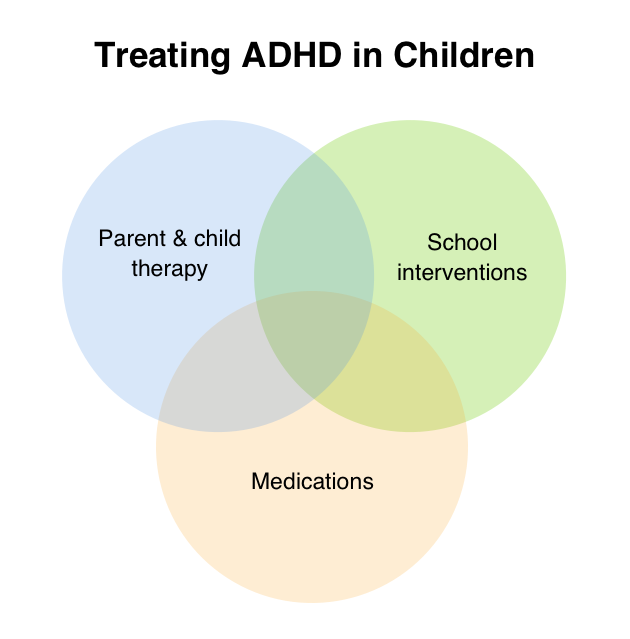Your Guide to Discovering the Right ADHD Treatment for Lasting Results
Browsing the intricacies of ADHD therapy requires a nuanced understanding of both the condition and the myriad choices offered for efficient management. It is important to identify that what works for one person may not always yield the exact same outcomes for one more.
Recognizing ADHD and Its Impact

In grownups, ADHD can bring about difficulties in workplace settings, affecting efficiency, time administration, and social connections. Frequently, undiagnosed or poorly took care of ADHD can add to co-occurring psychological health and wellness concerns, such as stress and anxiety and anxiety, more making complex an individual's total well-being.
The societal perception of ADHD can vary, bring about stigma and misconception, which may impede people from looking for help. As awareness expands, it is important to promote an environment that promotes understanding and support for those affected by ADHD, emphasizing the need for exact medical diagnosis and tailored strategies to mitigate its influence on everyday life.
Introduction of Therapy Alternatives
An extensive strategy to dealing with ADHD includes a range of options customized to the individual's unique requirements. These options can generally be categorized right into behavioral interventions, psychoeducation, and way of life adjustments, alongside medicinal therapies that may be discovered later on.
Behavioral interventions, such as cognitive-behavioral therapy (CBT), concentrate on modifying certain behaviors and creating coping strategies to handle symptoms properly. Psychoeducation plays an important role in encouraging both individuals and their families by offering details regarding ADHD, its challenges, and effective approaches for assistance.
Way of living modifications can substantially impact ADHD administration. Routine physical activity, a well balanced diet regimen, and sufficient sleep add to overall health and symptom control. Mindfulness techniques and relaxation methods can also boost focus and decrease impulsivity.
Support teams and family treatment can foster a feeling of area and understanding, helping individuals feel less isolated in their experiences. Each therapy choice must be taken into consideration in combination with the person's preferences and circumstances, guaranteeing an all natural approach that advertises long-term success. Ultimately, the objective is to produce a personalized treatment strategy that deals with the particular postpartum depression treatment challenges connected with ADHD while enhancing general quality of life.
Medication: Benefits And Drawbacks
Medication plays a pivotal function in the treatment of ADHD, with many options readily available that can substantially relieve symptoms for lots of people. Energizers, such as methylphenidate and amphetamines, are frequently prescribed and have shown effectiveness in enhancing emphasis, lowering impulsivity, and boosting overall behavior. These drugs function by boosting dopamine and norepinephrine degrees in the mind, which are commonly dysregulated in those with ADHD.
Nevertheless, the use of drug is not without its difficulties. Some people might experience negative effects, consisting of sleeping disorders, reduced cravings, or increased stress and anxiety. Discovering the right dose can be a trial-and-error process, requiring close surveillance by health care professionals. Additionally, not all individuals react to stimulant medications, leading some to check out non-stimulant choices, which might have a postponed onset of activity or various negative effects.
It is important for individuals and their families to consider these pros and cons carefully. Balancing the benefits of symptom management versus possible adverse effects is critical for accomplishing optimal therapy end results. Collaboration with doctor can help with educated choices, ensuring that medication is part of a comprehensive ADHD christians and depression monitoring plan.
Behavior Modification Methods

One commonly employed technique is Cognitive Behavior Treatment (CBT), which helps people recognize and alter unfavorable thought patterns that contribute to ADHD-related challenges. Therapist for ADHD. Through CBT, customers discover to set sensible objectives, manage time effectively, and develop organizational systems
One more efficient method is Moms and dad Management Training (PMT), which enlightens moms and dads on just how to strengthen favorable behaviors and decrease unfavorable ones special info through constant technique and communication methods. This technique cultivates a helpful home atmosphere that urges behavior improvements.
Social abilities training is likewise integral, aiding people with ADHD browse social communications much more effectively. Role-playing and modeling appropriate actions can improve social skills and lower anxiousness in social circumstances.
Way Of Life Adjustments for Better Management
Exactly how can way of life modifications dramatically enhance the administration of ADHD signs? Implementing calculated way of living adjustments can bring about significant improvements in focus, organization, and psychological law for people with ADHD.
To start with, establishing an organized daily regimen aids in creating predictability, which can reduce feelings of bewilder. Regular schedules for dishes, study, and rest can improve daily functioning.
Including regular exercise is additionally crucial, as workout has been shown to enhance dopamine degrees, improving interest and motivation (Therapist for ADHD). Going for at the very least half an hour of modest exercise most days can be useful
Nourishment plays a critical function as well. A balanced diet abundant in omega-3 fats, whole grains, and healthy protein can support cognitive function. Restricting refined sugars and high levels of caffeine might reduce signs and symptoms, as these can lead to energy collisions and irritability.
Conclusion
In final thought, locating the appropriate ADHD treatment requires a diverse approach that thinks about private needs and preferences. Cooperation with healthcare specialists and open interaction with support networks are crucial components in navigating the complexities of ADHD monitoring, inevitably leading to enduring results and boosted quality of life.